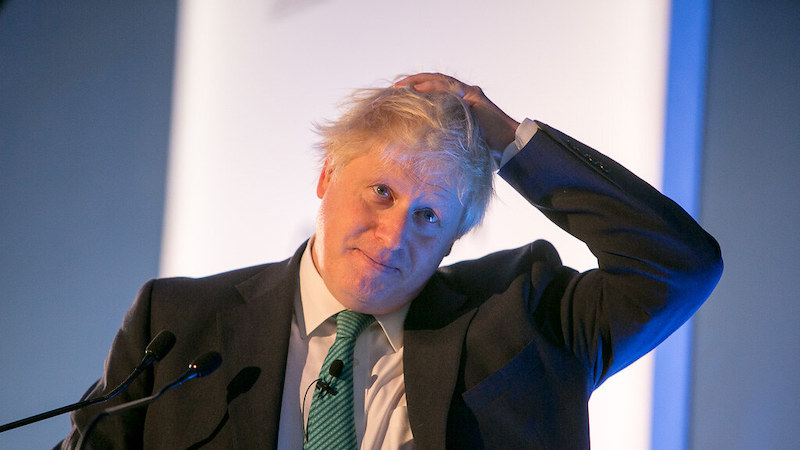For all the progress delivered by global climate agreements, slow incremental change is not curbing greenhouse gases quickly enough to stave off serious climate impacts.
This makes 2020 an absolutely critical year. It is the year when governments are due, under the agreement they made in Paris in 2015, to review progress and hasten action towards our joint goal of keeping global warming to 1.5C.
The UK will host the UN climate summit in late 2020, an opportunity which gives the UK an absolutely pivotal role in determining humanity’s future on our single, shared planet. The government and new prime minister have flagged their commitment to a zero-carbon Britain by 2050.
To keep the 1.5C target in play, the UK must ensure the summit focusses unwaveringly on a single objective: increasing the speed at which governments cut emissions. Currently we are hurtling towards 3 or 4 degrees of global warming, which will bring huge predictable impacts and equally huge but largely unpredictable risks.
Aviation’s black box: Non-disclosure agreements, closed doors and rising CO2
The Intergovernmental Panel on Climate Change (IPCC) told us last October that governments need to halve global emissions by 2030 and bring them to net zero by mid-century. The 2020 summit has to make concrete progress on both of those objectives. As host nation, the UK has a critical role to play.
There are three things that the UK must get right in order to deliver a path-breaking summit.
First, it must make crystal clear that reducing emissions is the single focus.
Some voices argue that, for example, it should focus on ‘greening the City of London’; but this is a distraction. Shifting finance from ‘brown’ to ‘green’ is a vital part of tackling climate change, but it is no substitute for government-led action across the board. Basing success on how many green bonds the city issues or how many banks disclose their financial risk will not impress either those developing countries already feeling the force of climate change impacts nor Britain’s newly invigorated citizen activists.
Second, the UK must ensure the summit delivers on the promise that western governments made a decade ago, to provide $100bn per year from 2020 to less well-off nations.
This will help people in the poorest countries protect themselves against multiple forms of damage, such as longer droughts, fiercer storms and rising seas. It will also enable developing countries to cut their own carbon emissions by charting low carbon growth. Ministers must have no truck with wearyingly familiar criticisms of overseas aid: the $100bn was a pledge, the money will make a meaningful difference to the pace of global decarbonisation in places, such as West Africa, where I have spent large chunks of my working life, and it needs to be delivered promptly, from 2020 onwards.
Thirdly, the UK must demonstrate to the rest of the world that it is cutting its own emissions on a timescale compatible with the 1.5C Paris target, and doing so without economic damage.
Here, it has a good story to tell. Since the birth of the climate change convention in 1992, the UK has both grown its economy more and cut its emissions more substantially than any other G7 nation. This proves that decarbonisation is not a barrier to economic growth, but helps shape a different greener path to prosperity. The decade-old Climate Change Act is increasingly being adopted as a model by other countries. Above all, the UK has just set a world-leading target of reaching net zero emissions by 2050.
But, as its own official advisors have noted, we are currently off track to deliver on targets for 2025 and 2030. This has to be put right now, if the UK is to credibly claim to lead others to greater ambition. Re-establishing strong incentives for local investment in renewable energy would bolster this ambition.
Climate Home News needs your help… We’re an independent news outlet dedicated to the most important global stories. If you can spare even a few dollars each month, it would make a huge difference to us. Our Patreon account is a safe and easy way to support our work.
The UK was the first major nation to call for a global climate treaty, when prime minister Margaret Thatcher warned the UN General Assembly 30 years ago that “we shall only succeed in dealing with the problems through a vast international, co-operative effort.” Despite this, the UK has not until now hosted one of the annual summits. The government’s determination to put that right is welcome.
But now it has to prepare to deliver. British diplomats must begin preparatory work in all the world’s capitals, as French diplomats did in the lead-up to the ultimately successful Paris summit. And their messages, their requests and their offers need to be unwaveringly focussed on accelerating decarbonisation on the route to global net zero emissions by 2050.
Whether or not ministers formally adopt the slogan of a “net zero Cop”, that is what it needs to become. Successful delivery of such a seminal summit will gain much kudos for Britain and be a major step forwards in averting the very present danger we now face.
Can this new prime minister and government, with their single-minded focus on achieving Brexit, invest what is needed now to make the summit a success?
Camilla Toulmin is a member of the Energy and Climate Intelligence Unit’s advisory board and former director of the International Institute for Environment and Development (IIED)
